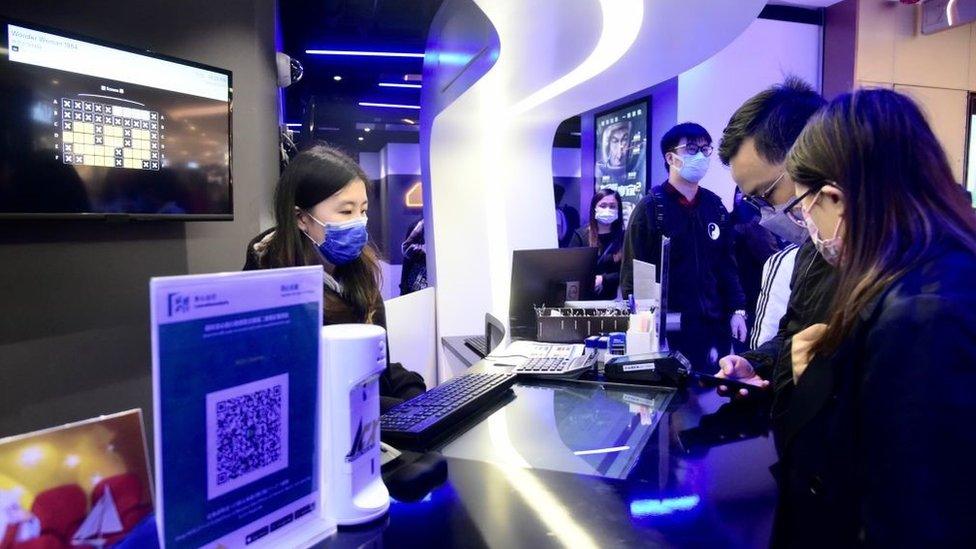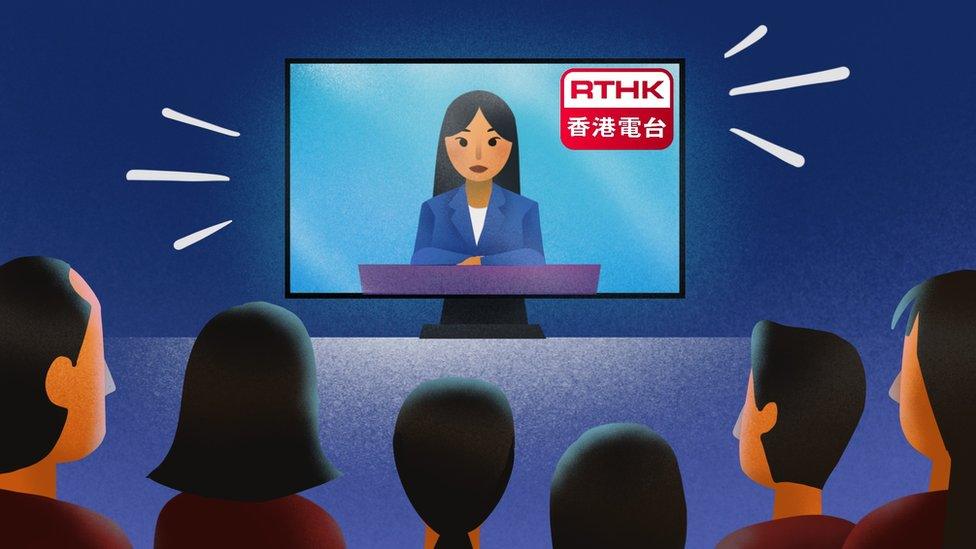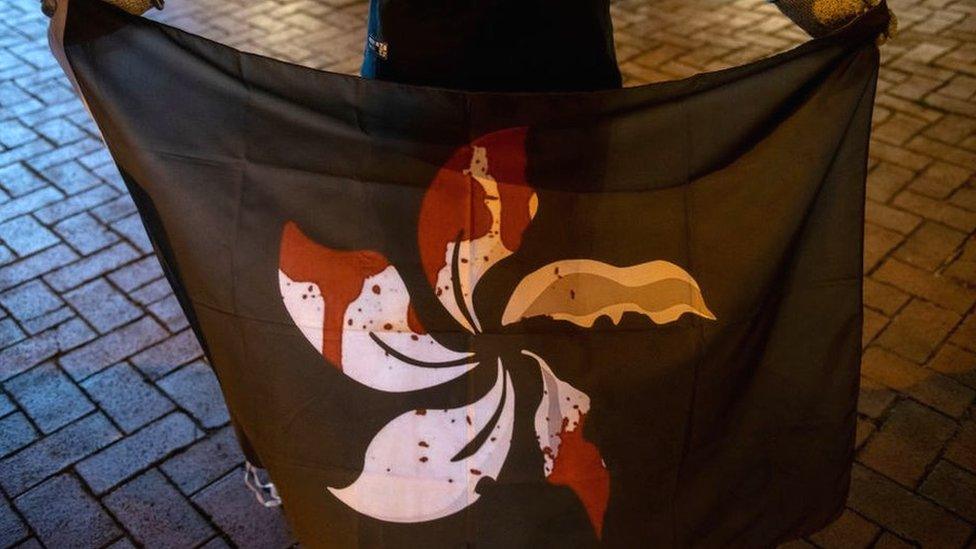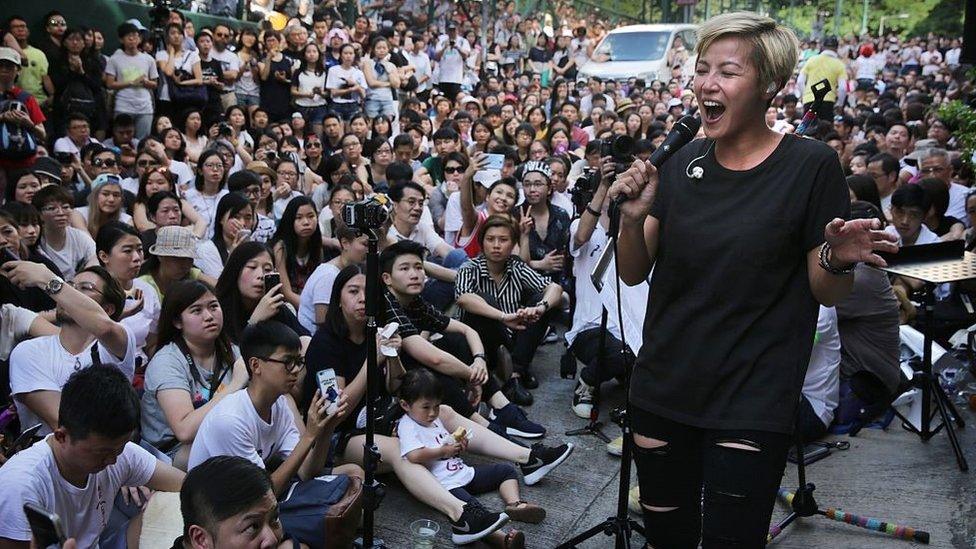Hong Kong to censor films that ‘endanger national security’
- Published

Hong Kong's thriving film industry had previously enjoyed freedoms not seen in mainland China
Censors in Hong Kong have been given the power to vet films that authorities say may endanger national security, as a clampdown on dissent continues.
The order also instructs censors to prevent and suppress acts that do not uphold the sovereignty and territorial integrity of China.
Hong Kong's thriving film industry had previously enjoyed freedoms not seen on the mainland.
Last year Beijing imposed a new law to stamp out pro-democracy protests.
The national security law can carry a maximum term of life in prison.
The Film Censorship Authority should stay "vigilant to the portrayal, depiction or treatment of any act or activity which may amount to an offence endangering national security", the government said in a statement.
"Any content of a film which is objectively and reasonably capable of being perceived as endorsing, supporting, promoting, such act or activity" will be censored, according to the guidelines.
It also cites "the common responsibility of the people of Hong Kong to safeguard the sovereignty, unification and territorial integrity of the People's Republic of China."
Films go through strict censors on the Chinese mainland and only a select few Western films or documentaries are released commercially each year. Historically Hong Kong has taken a far more liberal approach.
The order has been met with anger and sadness by many on social media who say it will curtail artistic expression.
Allow X content?
This article contains content provided by X. We ask for your permission before anything is loaded, as they may be using cookies and other technologies. You may want to read X’s cookie policy, external and privacy policy, external before accepting. To view this content choose ‘accept and continue’.

Allow X content?
This article contains content provided by X. We ask for your permission before anything is loaded, as they may be using cookies and other technologies. You may want to read X’s cookie policy, external and privacy policy, external before accepting. To view this content choose ‘accept and continue’.

What's the background?
The former British colony was handed back to China in 1997 under a model called "one country, two systems".
Under the deal, which gave the territory freedoms not available in mainland China, Hong Kong also had its own mini-constitution and an elected parliament.
These freedoms are enshrined in Hong Kong's mini-constitution, the Basic Law, which was meant to last until 2047.
From protests to 'patriots': Why China is bent on crushing Hong Kong dissent
But fears that this model was being eroded led to huge pro-democracy protests in 2019.
Some protests turned violent and in 2020, China introduced the national security law in the territory.
Beijing said the law would target "sedition" and bring stability. Since the law was enacted in June last year, around 100 people have been arrested.
Related topics
- Published27 May 2021

- Published19 March 2024

- Published25 August 2020
